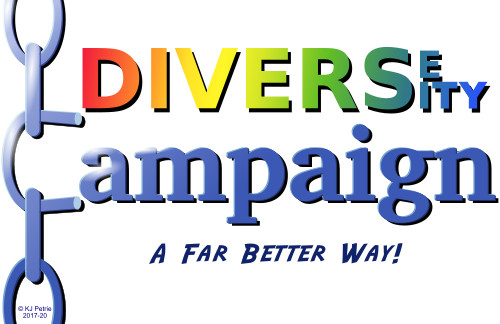Opinion
3rd January 2024
When updating hides meaning
Reading one of today’s set psalms I was struck by how misguided some attempts to modernise the meanings of historical texts can be. The psalm in question was 127, which ends with the famous simile:
“Like arrows in the hand of a warrior, so are the children of ones youth.
Happy is the man who has his quiver full of them.He shall not be shamed
When he disputes with his enemies in the gate.”
Predictably, in the current version used in the Church of England, this has become:
“Like arrows in the hand of a warrior, so are the children of ones youth.
Happy are those who have their quiver full of them.They shall not be shamed
When they dispute with their enemies in the gate.”
This has apparently been changed in the misguided belief pluralising the pronouns removes the gender from the imagery, thus ‘including’ the female half of the population who might feel themselves excluded by the masculine language.
The problem is, there is much more than gender excluding the modern reader. There are numerous cultural shifts separating us from the author or the original readers, and the lame attempt to update the text for our own age actually makes it slightly harder to understand how to apply an idea belonging to one age and time in a time so altered the basic imagery simply fails to hold up in its original form.
Let’s start with the figurative nature of a simile. A simile is a form of comparison which can only be understood by extrapolation. A reader has to extrapolate from the example to similar or analogous situations. Clearly, the reader is not necessarily a warrior and there are no actual arrows. The extrapolation from the warrior to the reader and the arrows to the children overcomes the gender references straight away. It is not the reader who is assumed to be male, but the symbolic warrior. That implies nothing about the reader applying the example to his or her own position, so the sex of the hypothetical warrior becomes irrelevant.
Yet there is much more distancing our time from that of the author. Our towns no longer have gates, and if they did, they would not be the location of the law courts where disputes are settled. Nor would we approve of packing the witnesses or jury with our own supporters to bias the case in our favour. (Despite the fact ancient Hebrew law supposedly frowned on corrupt judges, it seems the psalmist still felt an advantage in having numerical support.) Nor would we desire a system in which family loyalty and support were seen as the deciding factor in a case. We aspire to fair processes in which cases rest on their inherent merit rather than the number of allies. Finally, our soldiers no longer fight with arrows. Why not change them to bullets or rockets while we’re at it?
Then there is the changed socio-economic context. We no longer live in a world where unlimited expansion of the population looks sustainable. We are only too aware of the limits of our resources and the pressure human activity imposes on our environment. In the West, and increasingly around the world, people see large families as irresponsible rather than desirable. Three thousand years ago, more children to expand the labour force and the amount of land which could be worked to provide a bigger harvest might have looked like a route to food security. Now, it tends to look like the reverse; too many mouths to feed when many people are already hungry.
No, we cannot update this saying by messing around with gender. Doing so entirely misses the point that it belongs to its age and our age has changed. We need to start from that change when considering what it should mean to us today, and that’s not helped by trying to cover it up.

